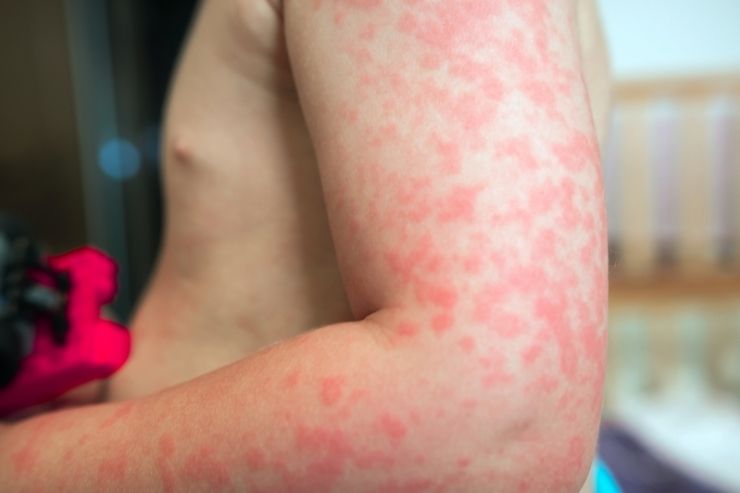
Skin allergies are a common condition where the immune system reacts to substances that are usually harmless, resulting in a range of skin symptoms. These allergic reactions can cause discomfort and affect the quality of life. At PARI HOSPITAL, our dermatology specialists are dedicated to diagnosing and treating skin allergies, providing you with effective solutions to manage and alleviate symptoms.
What Are Skin Allergies?
Skin allergies occur when the immune system overreacts to an allergen, causing inflammation and irritation of the skin. Common allergens include certain foods, medications, environmental factors, and chemicals. Skin allergies can manifest in various forms, including hives, eczema, and contact dermatitis.
Common Causes of Skin Allergies
Allergens: Substances like pollen, pet dander, mold, and dust mites can trigger allergic reactions in sensitive individuals.
Contact Irritants: Chemicals in soaps, detergents, and cosmetics can cause allergic reactions or contact dermatitis.
Foods: Certain foods, such as nuts, shellfish, or dairy products, can lead to skin reactions in individuals with food allergies.
Medications: Allergic reactions to medications can result in skin rashes, itching, or hives.
Insect Bites or Stings: Bites or stings from insects like mosquitoes or bees can trigger allergic reactions.
Environmental Factors: Extreme temperatures, humidity, or exposure to sunlight can aggravate existing skin allergies.
Symptoms of skin allergies can vary depending on the type and severity of the reaction. Common symptoms include:
Itching: Itching is a primary symptom of skin allergies and can range from mild to severe.
Redness: Allergic reactions often cause the skin to become red or inflamed.
Hives: Raised, itchy welts or bumps that can appear anywhere on the body.
Rashes: Allergic reactions may cause rashes that can be dry, scaly, or blistered.
Swelling: Swelling of the skin, particularly around the eyes, lips, or hands, can occur with some allergic reactions.
Blisters: In severe cases, blisters may form on the skin.
Treatment Options for Skin Allergies
Effective management of skin allergies involves identifying and avoiding triggers and using treatments to alleviate symptoms:
Avoiding Allergens: The most effective way to manage skin allergies is to avoid known allergens and irritants. This may involve changing personal care products, modifying your diet, or avoiding environmental triggers.
Topical Medications: Corticosteroid creams or ointments can help reduce inflammation and relieve itching. Non-steroidal anti-inflammatory creams may also be prescribed for some types of skin allergies.
Antihistamines: Oral antihistamines can help control itching and reduce other allergic symptoms.
Moisturizers: Regular use of emollients or moisturizers can soothe dry, irritated skin and create a protective barrier.
Cold Compresses: Applying a cold, damp cloth to the affected area can provide relief from itching and reduce swelling.
Immunotherapy: In cases of severe allergies, immunotherapy (allergy shots) may be recommended to help desensitize the immune system to specific allergens.
Preventing Skin Allergies
Preventing skin allergies involves taking proactive steps to minimize exposure to known allergens and irritants:
Identify and Avoid Triggers: Work with a healthcare provider to identify potential allergens and avoid them. Keeping a diary of symptoms and exposures can help pinpoint triggers.
Use Hypoallergenic Products: Opt for skin care products and household items that are labeled hypoallergenic and free of common irritants.
Practice Good Hygiene: Regularly wash and gently dry your skin to remove allergens and irritants.
Protect Your Skin: Wear protective clothing or use barriers when handling substances that may trigger allergic reactions.
Manage Allergies: For individuals with known allergies, managing overall allergic conditions with appropriate medications and lifestyle adjustments can help prevent skin reactions.